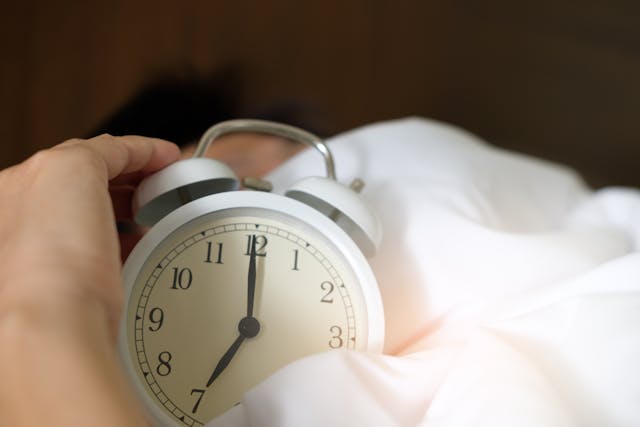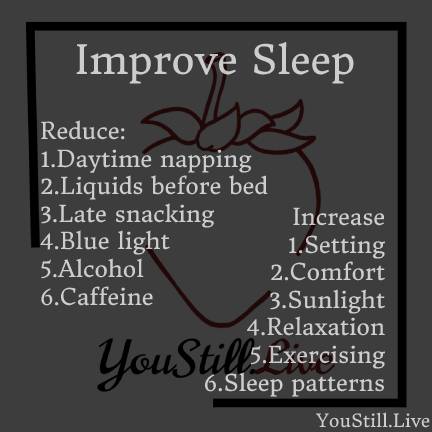Sleep is a big part of our lives. It affects our health, both physically and mentally – so it is extremely important to manage it properly. Poor sleep can have a negative impact on your mood, energy, productivity, brain function, weight, and overall health. How to improve sleep?
How important is sleep?
Sleep is a fundamental pillar of health and well-being, playing a critical role in physical, mental, and emotional balance. Quality sleep allows the body to repair itself, consolidate memories, and regulate hormones that influence mood, appetite, and overall vitality. During deep sleep, the body engages in restorative processes such as tissue growth, muscle repair, and immune system strengthening. Without adequate rest, individuals are more susceptible to chronic conditions such as heart disease, diabetes, and obesity. Moreover, sleep impacts cognitive functions like decision-making, problem-solving, and creativity, underscoring its importance for both personal and professional success. Despite its significance, many people compromise sleep due to demanding schedules, stress, or technology overuse, leading to a decline in overall health.
Good sleep is not merely about quantity but also quality. Achieving restful sleep requires adopting healthy habits, such as maintaining a consistent sleep schedule, creating a comfortable sleep environment, and limiting stimulants like caffeine and screen exposure before bedtime. Poor sleep hygiene can disrupt the natural sleep-wake cycle, leading to issues such as insomnia or fatigue. Conversely, prioritizing sleep can enhance mood, energy levels, and resilience against stress, making it a cornerstone for thriving in a fast-paced world. Investing in sleep is not just about avoiding health risks but also about fostering a more fulfilling and productive life.
How to improve your sleep?
There are various methods which can help manage and accomplish a good sleep. Let’s explore some of them below. First we start with factors affecting our sleep negatively (which we need to reduce). Then, we list the factors that contribute to a better sleep (which we need to increase).
What to reduce?
– Caffeine
Caffeine is well known to help us stay awake. It boosts our energy and performance levels. But consuming too much caffeine throughout the day, and particularly later in the day, can cause sleep disruption.
– Alcohol
Whilst a drink before going to bed may help you relax, consuming it regularly as well as in larger quantities can negatively affect your sleep. Alcohol influences your hormones and can have an adverse impact on your sleep.
– Blue light before sleep
Smartphones, TVs, tablets, laptops, and so on. They all emit blue light, which suppresses melatonin (a hormone that regulates our sleep patterns) – which in turn has a negative effect on our sleep. It is a good practice to avoid the usage of any devices 1-2 hours before bed.
– Reduce late snacking
Whether an impulsive indulgent ice cream or little snack with a film, it is not a secret that this is a common practice. But the consumption of food late in the day, or worse late at night, can be bad for the quality of your sleep. It is a good practice to avoid eating anything 3-4 hours before going to sleep.
– Liquids before bed
You should try to limit large quantities of liquids at least 1-2 hours before bed time. By reducing the consumption of fluids, you decrease the chance of waking up in the middle of the night.
– Daytime napping
Sleeping during daytime can disturb the quality of your sleep, by confusing your internal clock. This statement generally refers to long napping time – more than 30min. On the other hand, sleeping for 15-20min, or power naps, can be very beneficial as they reduce stress as well as boost energy levels and recharge your brain.

What to increase?
+ Natural sunlight
Exposure to more sunlight can help regulate your sleep quality. The natural light helps the circadian rhythm of your body to stay intact. The circadian rhythm is an internal process regulating your sleep-wake cycle throughout the day and night (approx. 24h).
+ Exercising
Regular exercising decreases the chance of insomnia as well as increases the quality of your sleep, and more particularly the restorative stages (or deep sleep). Nevertheless, the more active you are, the more your hormones are stimulated. This can interfere with sleep pattern, so working out heavily in the evening is not recommended. Instead, you can try light yoga or stretching.
+ Sleep regularity
Going to sleep and waking up at the same time everyday adjusts your body to regular sleeping timings. In this way, the circadian rhythm (the internal body clock) aligns itself to a consistency with the sunrise and sunset. People with properly set circadian rhythms often do not need alarm clocks to wake up in the morning – we all have that friend.
+ Comfort
Often, comfort may cause sleep problems. Changing some aspects of the bed may boost sleep quality – mattress, bed frame, pillows, and bedding. Uncomfortable mattresses and pillows in particular are associated with back and neck pain, as well as sleep disturbance.
+ Setting
Adjusting the setting of your bedroom can also help ease sleeping. Bedtime routine is supposed to be peaceful, and some small changes can significantly impact the quality of your sleep – such as temperature, noise, and light. Noise and light can negatively affect your peace. Increased temperature is also often associated with sleep issues – so cooling down your bedroom can be beneficial for you (most people feel comfortable around 18-20°C/65-70°F).
+ Relaxation
Winding down is important before going to sleep. Relaxing and clearing your mind is a critical stage in preparing for sleep. There are different bedtime rituals that can help you clear your thoughts and calm your brain activity, which in turn can improve your sleep.
Ways to increase relaxation?
- A warm shower, or bath even better, can help you relax.
- Soft music and dimming the lights can help clear your head.
- Reading or listening to an audiobook can also wind you down.
- Light stretching or yoga can provide better sleep.
- To-do list before going to bed helps clearing your thoughts.
- Breathing exercises can also calm you down and prepare for bedtime.
- A scan exercise is associated with better sleep. (?) University of Minnesota
- Meditation can be a powerful tool to relax and improve sleep quality.
- Visualisation is a useful tool for organising your thoughts.
- Massage is another effective tool for preparing for sleep.

More on Health:
Healthy Skin: Foods and Nutrients Keeping Your Skin In Good Health
15 Superfoods: The Power of Health
Books You Must Read: Change
Benefits of Kale: The King of Healthy Food


